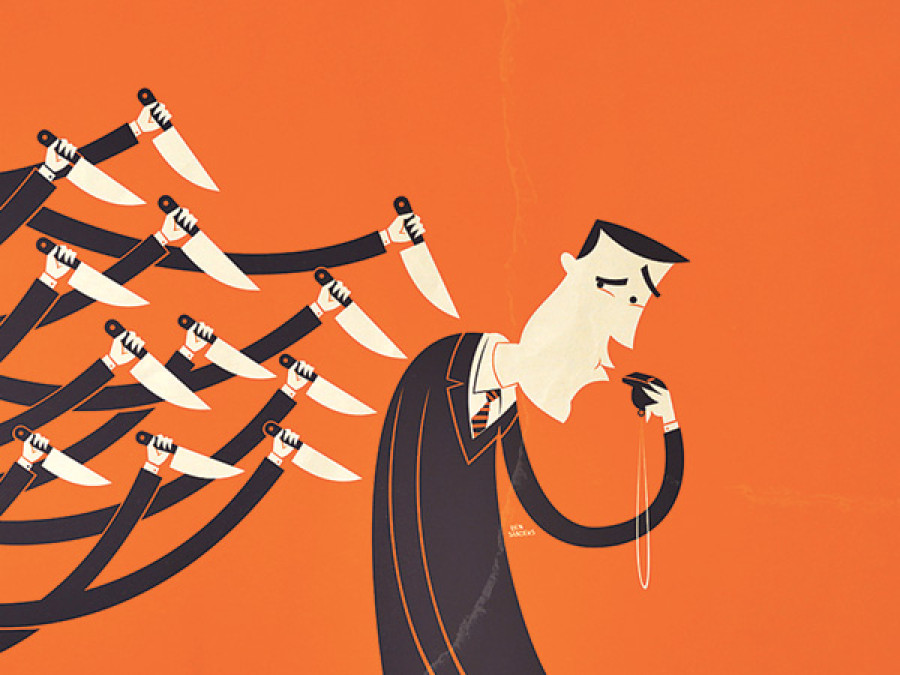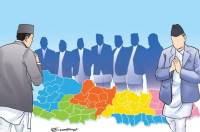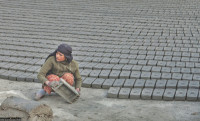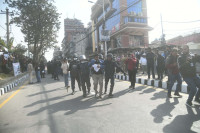Opinion
Where are the rights?
Representatives from the marginalised communities are under pressure to conform to the norms
Mukesh Jha
Human rights are not something that can be selectively applied. They should be the same for all and no one should be treated differently. A case in point, according to the BBC, is when Anders Behring Breivik recently won part of a human rights case against the Norwegian state. Mr Breivik is a mass murderer who killed 69 people at a summer camp on the island of Utoeya, Norway in 2011. He had challenged the Norwegian government about his solitary confinement, terming it as a violation of his human rights. The court ruled in his favour and mentioned in the ruling that ‘the right not to be subjected to inhuman treatment represented a fundamental value in democratic society and also applied to terrorists and killers’.
Attack on NHRC
Mohna Ansari, a lawyer by profession who had successfully led as a commissioner at the National Women’s Commission, has a credible track record and is the spokesperson for the National Human Rights Commission (NHRC). However, Prime Minister KP Sharma Oli summoned the chairman of NHRC and other members, including Ansari, at his residence to question them about the NHRC’s statement at the Universal Periodic Review in Geneva, Switzerland. The PM was clearly unhappy and is reported to have gone through the printed copy of Ansari’s statement, which she had presented on behalf of the commission, reprimanding her along with other NHRC officials. He also accused the commission of tarnishing the country’s reputation in the international arena.
Following the episode, the Amnesty International, Human Rights Watch, International Commission of Jurists, Asian Human Rights Watch and Tarai Human Rights Defenders Alliance condemned the incident and termed it as the government’s attempt to intimidate the NHRC, which is a constitutional body formed as per the Paris Principles, a set of international standards which frame and guide the work of national human rights institutions.
The action of the PM was wrong on many levels. First the PM, as the executive head, does not have the right to question the activities of a constitutional body like the NHRC, which is only accountable to Parliament. Second, the NHRC is a watchdog mechanism formed with the mandate to monitor rights violation in the country without any prejudice. Third, allegations of bringing bad name to the country in the international arena is most laughable, since the NHRC is supposed to report what it observes and draw international attention to it. Brushing the rights violation within a country under the carpet for the fear that they can sully the good name of the country is something no national institution, leave aside the NHRC, should do. If anything, the government should be more concerned with addressing rights violations than trying to hide them. The truth cannot be hidden for long.
Moreover, as if the attack on the NHRC from the executive head of the government was not enough, a national vernacular daily published an unsubstantiated report about Ansari, alleging that she met the Madhesi activist CK Raut. The same newspaper went to the length of publishing an editorial demanding the impeachment of Ansari. CK Raut, who is infamous for demanding a separate Madhes state, did submit a memorandum to the NHRC. However, for the sake of clarification, first, Raut has been acquitted by the Supreme Court of the charges of treason slapped by the state. Second, the NHRC is supposed to accept complaints about human rights violations without judging the applicant.
As mentioned earlier, human rights are for all and cannot be selectively bestowed on individuals.
Double standards
Nepal is a place where double standards can be observed in every aspect of social life. Narratives are based on what the mainstream media and the establishment want people to believe. Issues related to the marginalised communities and their voices are deliberately censored or given less priority. Any institution or body showing empathy to or taking up the cause of those who have been left out of the system is immediately labelled an anti-national force. Inclusion has been accepted only reluctantly by the state structures and decision-makers. Representatives from the marginalised communities, more often than not, are under intense pressure to conform to the norms. However, if someone tries to defy the dominant narrative, the whole state machinery hounds them to submission. Maybe it is time for us to reassess the reputation of the people who are known in the South Asian circle as liberals but turn out to be supporting extreme right-wing agendas when it comes to domestic matters.
Jha is a computer engineer with a master’s degree in Computing and Information Science




 17.12°C Kathmandu
17.12°C Kathmandu










